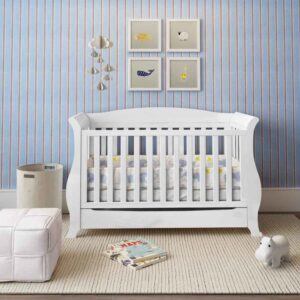Beyond Assistance: The Comprehensive Benefits of In-Home Care Services

A reliable support system becomes the need of the hour when you have a senior person around. Thus, in home care services extend far beyond simple assistance with daily activities. They embody a holistic approach to healthcare, focusing on improving the quality of life for the elderly, individuals with chronic health conditions, disabilities, or those recovering from surgery. This personalized care model offers numerous benefits, encompassing physical health, mental well-being, and social interaction, tailored to meet the unique needs of each individual in the comfort of their own home. Read on to explore these comprehensive benefits in detail.
Personalized and Flexible Care
One of the most significant advantages of these services is the ability to provide personalized, one-on-one support tailored to the individual’s specific needs. Unlike traditional care settings, where staff must divide their attention among many, the caregivers here can focus solely on one client, allowing for more detailed and attentive care. This flexibility enables adjustments to the care plan as the individual’s needs evolve, ensuring they always receive the appropriate level of support.
Maintenance of Independence and Dignity
For many, staying in their home is crucial for their independence and dignity. These services support this by helping individuals manage their daily routines and encouraging self-care to the extent possible. This approach promotes a sense of achievement and autonomy. It contributes to a better quality of life by allowing individuals to remain in a familiar and comfortable environment, surrounded by their belongings and memories.
Enhanced Safety and Comfort
Safety is paramount, especially for those with limited mobility or cognitive impairments. In-home caregivers are trained to identify and mitigate potential hazards in the home, reducing the risk of falls and accidents. Moreover, the comfort of being in one’s own home, with personalized care, can significantly enhance healing and recovery, making it a preferred choice for post-operative care and chronic disease management.
Comprehensive Health Monitoring
These services provide more than just assistance with activities of daily living; they offer comprehensive health monitoring, including medication management, appointment scheduling, and coordination with healthcare providers. This continuous oversight can lead to early detection of potential health issues, preventing them from escalating into more severe conditions. It ensures that health concerns are addressed promptly, preventing minor problems from becoming emergencies.
Mental and Emotional Support
The psychological benefits of these services are as significant as the physical ones. Companionship provided by attendants can combat feelings of loneliness and isolation, especially in elderly individuals who may live alone. They can also engage clients in mentally stimulating activities, encourage social interaction, and support hobbies and interests that keep the mind active and engaged.
Support for Families
These services also offer invaluable support to families, providing peace of mind knowing that their loved one is receiving professional, compassionate care. This can alleviate the stress and burden on family members, particularly those juggling responsibilities with work and other commitments. It also enables families to spend quality time with their loved ones rather than focusing solely on caregiving tasks.
Tailored Nutrition and Exercise Plans
Nutrition and physical activity are crucial components of overall health, especially for the elderly or those with chronic conditions. The attendants here can prepare nutritious meals that cater to specific dietary needs and preferences, promoting better health outcomes. Additionally, they can encourage and assist with regular, gentle exercise routines tailored to the individual’s abilities, enhancing mobility, strength, and balance.
Integration of Technology in Care
Nowadays, these care services are increasingly integrating technology to enhance the quality and efficiency of care. Telehealth services, remote monitoring systems, and specialized mobile apps are becoming integral parts of in-home care, enabling attendants and healthcare providers to track the health status of clients in real time. This technological integration facilitates timely medical consultations, reduces the need for frequent hospital visits, and ensures that critical health indicators are within safe parameters. It also offers clients and their families additional peace of mind, knowing that support and medical advice are just a click away.
Tailoring Environment to Enhance Well-being
Another critical aspect of this form of care is the ability to tailor the living environment to better suit the needs and preferences of the individual receiving care. This goes beyond essential safety modifications, such as installing grab bars or anti-slip mats. It includes adjustments to lighting for those with vision impairments, creating dementia-friendly spaces that reduce confusion and agitation, and even personalizing the decor to reflect the individual’s life, interests, and achievements. Such environmental tailoring can significantly improve cognitive function, emotional well-being, and overall comfort, making the home a place of care and a sanctuary of memories and personal identity.
Conclusion
The comprehensive benefits of in home care services go beyond essential assistance, encompassing a wide range of physical, mental, and emotional support tailored to individual needs. Promoting independence, enhancing safety, and providing personalized care play a crucial role in improving the quality of life for those who wish to remain in their homes. For individuals and families navigating the complexities of aging, disability, or illness recovery, in-home care offers a flexible, compassionate solution that meets their unique needs and preferences.







